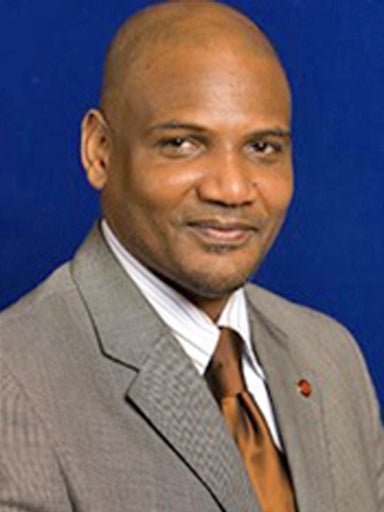Exclusive: Head of black police group criticises IPCC over 'smear' of campaigners
Watchdog attacked for not investigating claims Manchester Police spied on activists

The head of the National Black Police Association has criticised a watchdog for failing to order an investigation after his force requested intelligence on people attending the 1998 public inquiry into the death of Stephen Lawrence.
Charles Crichlow, a police officer in Greater Manchester, said the decision by the Independent Police Complaints Commission (IPCC) was "astonishing". He added that he had not been contacted by investigators even though he first raised the complaint about a memo calling for information.
The Home Secretary Theresa May ordered all forces last month to trawl through their files after a former Scotland Yard undercover officer claimed that he had been asked to find information on people linked to the Lawrence family, and claimed it would have been used to smear them. David Cameron described them as "dreadful allegations" and said that any suggestion that the family were being undermined by police while seeking justice for their son would be horrific.
Several forces including Greater Manchester uncovered material that suggested that people attending the public inquiry into the death of the 18-year-old had been subject to scrutiny when hearings were held around the country.
Greater Manchester sent a memo to senior officers in which the force's Special Branch requested information on "groups or individuals" likely to attend the inquiry. At the subsequent hearing in Manchester, the then Chief Constable David Wilmot accepted that his force, the country's second biggest, was infected by institutional racism.
Mr Crichlow did not attend the hearings himself for fear of becoming the subject of a Special Branch file.
When a serving constable with the force, he first complained to his supervisor when he saw the email in 1998. A senior officer then warned officers "during these sensitive times" to ensure that we "take care to ensure our messages about race are appropriate, clear and unambigious."
The IPCC said Mr Crichlow's concerns appeared to have been taken seriously and said last week there was no indication of misconduct and declined to conduct a wider inquiry unless further evidence was discovered.
But Mr Crichlow said that the IPCC had reached its decision without speaking to him. He claimed that he had a different view of how the episode unfolded than the one detailed in a submission to the Home Office. The memo later featured in an employment tribunal case that Mr Crichlow took against the force.
"The IPCC never spoke to me," he told The Independent. "They didn't rely on what I said but on a chief superintendent of a discredited force where the Chief Constable declared the GMP to be institutionally racist. I can't tell you how incredible that decision is by the IPCC.
"I can't believe they made this decision. They haven't got the facts because they haven't spoken to me."
The IPCC last week ordered an investigation into the former Chief Constable of West Yorkshire, Sir Norman Bettison, over claims that he ordered his officers to compile a detailed report on an anti-racism campaigner before he testified to the Macpherson Inquiry. It said there was no "legitimate justification" for gathering the evidence against the campaigner.
However the IPCC said it would not investigate the claims made by the former undercover officer Peter Francis because he has declined to speak to a police inquiry into allegations of wrongdoing by covert police, and there was no evidence to back his claims. The watchdog also said there would be no immediate inquiry into claims of alleged intelligence-gathering in Manchester and South Yorkshire.
The IPCC said last night that the investigation by Greater Manchester Police was continuing and any evidence of misconduct should be passed to the watchdog. It said that its decision was based upon the papers received from the force.